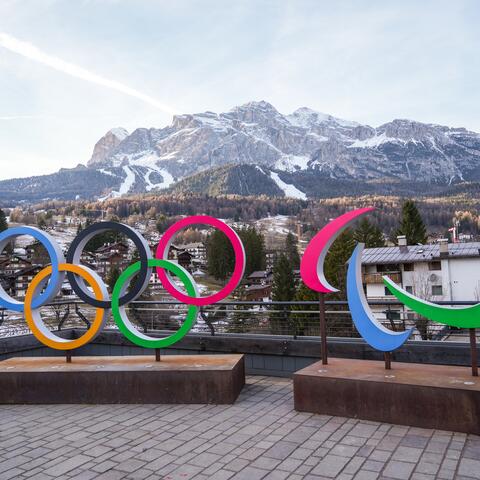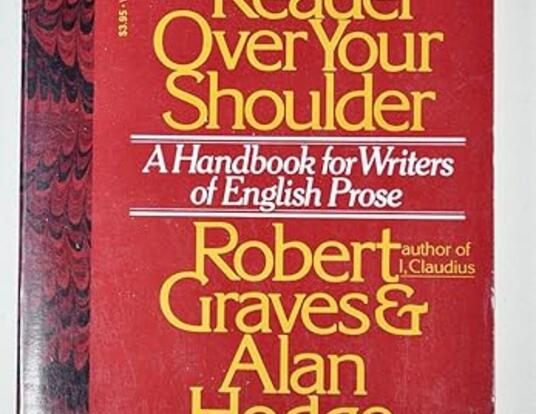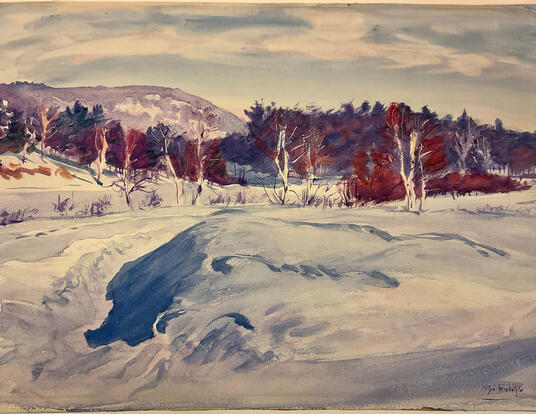For the Love of Reading: the FWC’s Summer Reading List
Notes from a Writer's Desk
My lifelong love of reading was stimulated from a young age. Every weekend my family went to the public library, where I would get lost in the stacks selecting my books. As an older child, I would pilgrimage to the Book Barn in Niantic, CT, a magical site with dozens of structures packed to the brim with secondhand books (and cats!). I have fond childhood memories of participating in the “Connecticut Reads” summer reading challenge. I loved perusing the booklist and got immense satisfaction (maybe too much?) checking off the ones I read as I finished. But most of all, I loved spending my summer days curled up with a good book (even if my mom was shouting at me to go play outside!).
I share my love of reading with an aunt, who once said to me, “browsing a bookstore is like visiting old friends.” And indeed, whenever I enter a bookstore or a library, I feel an immense sense of pleasure reacquainting myself with books loved (and even not loved) and meeting new friends (books). Here in Cambridge, we are #blessed to have a veritable cornucopia of booksellers and libraries. The Cambridge Public Library is one of my favorite libraries, but I also love the reading areas at the main branch of the Boston Public Library in Back Bay (especially the courtyard). Booksellers abound: the classic Harvard Book Store doesn’t disappoint with both new and used books, Rodney’s Bookstore (formerly Raven Books) is likely to have a rare find, Porter Square Books is in a new and expanded location up Mass Ave, and the brand new Lovestruck Books on Brattle specializes in romance and has a wine bar and café patio! And I’d be remiss to not mention one of my all-time favorite bookstores, the Brookline Booksmith, which is accessible by a straight-shot ride south on the 66 bus! One of my favorite features of bookstores are those delightful little “recommendation” cards filled out by the store’s booksellers. Not only do these distributed lists remove some of the decision paralysis around selecting my next read, but I get what feels like a personalized recommendation (I know, it’s not!).
In these difficult times where education is being viciously attacked, knowledge and innovation imperiled, and thinkers—especially right now international students and academics—suppressed, I am drawn to the idea that to combat ignorance requires a resilient embrace of the acts of knowledge: we must read, we must teach, we must research, we must write. In celebration of reading (the first and perhaps most important of these actions), the staff and postdocs at the Fellowships & Writing Center have prepared our own recommendations for summer reading, comprising books we already know we love and books we are excited to open for the first time. Be sure to let us know if you read any of our recommendations. If you read at least three before August 31, I’ll even give you a gold star!
Summer Reading Recommendations from the FWC Staff & Postdocs
Non-Fiction
Image
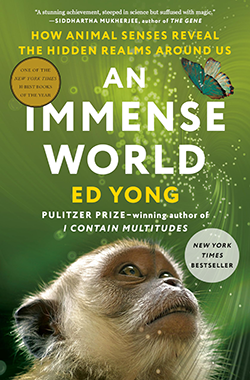
| An Immense World: How Animal Senses Reveal the Hidden Realms Around Us by Ed Yong An Immense World by Ed Yong, a Pulitzer-prize winning science journalist, is about the sensory experiences and neurobiology of different animals. It is organized by sense, so it starts with smell/taste and progresses into vision, etc. I studied mosquito olfaction while a grad student, so it is fun to get a bigger picture of how animals process our world. |
Image
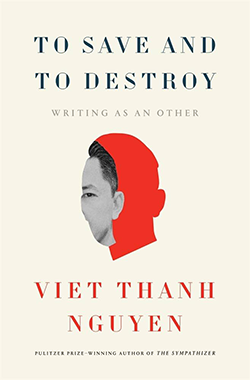
| To Save and To Destroy: Writing as Other by Viet Thanh Nguyen To Save and to Destroy comprises the six lectures that Viet Thanh Nguyen delivered two years ago as the Norton Lectures here at Harvard, now in book form. The lectures—focusing on the writer as an Other and drawing from Nguyen’s life, having arrived in the U.S. with his family as a refugee from Vietnam when he was a child—were compelling, humorous, emotional, and deeply personal, and I’m curious to see how they translate to the page. Reading them will allow more time to pause and reflect on particularly thought-provoking ideas. The book’s description notes that the six chapters explore being an outsider through lenses that are “literary, historical, political, and familial.” Nguyen—Professor of English, American Studies and Ethnicity, and Comparative Literature at the University of Southern California—has won many awards for his writing, including the Pulitzer Prize for The Sympathizer. |
Image
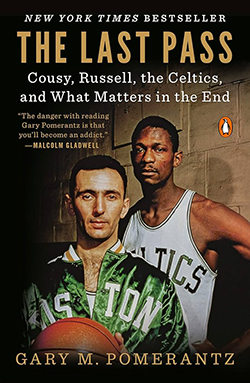
| The Last Pass: Cousy, Russell, the Celtics, and What Matters in the End by Gary M. Pomerantz I’m looking forward to reading The Last Pass, which recounts the complicated relationship between Bob Cousy and Bill Russell, the greatest players of the Celtics dynasty of the 1950s and 1960s (which won 11 championships in 13 years, including an unparalleled eight in a row). It’s based on over 50 interviews with Cousy, now 96 years old, and his regrets that he didn’t do more to get to know Russell during the team’s heyday. Cousy, the white point guard and passing maestro, was viewed as a sports hero and American icon; Russell, the Black center, was in the shadow of Cousy, yet truly the key to the Celtics dynasty. A five-time MVP and 11-time NBA champion (including the last two as player-coach), Russell is the winningest American professional athlete in history. He was also a fierce civil rights advocate, a legacy for which, upon his death in 2022, every NBA team retired his number. This book is about the Celtics, yes, but also about individual relationships and a tumultuous time of racial injustice in this country (an important history lesson for those who malign values like “diversity” and “equity”). In other words, it could appeal to those who aren’t strictly basketball (or Boston) fans. |
Fiction
Image
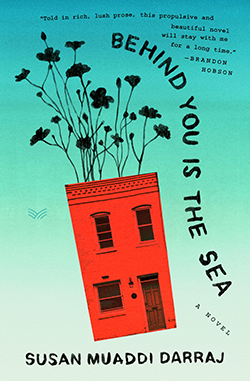
| Behind You Is the Sea by Susan Muaddi Darraj I just finished reading Behind You Is the Sea by Susan Muaddi Darraj. A collection of short stories about the Palestinian-American community in Baltimore intricately woven together into a novel, it features rich character development. It was also a finalist for the PEN/Faulker Award. |
Image
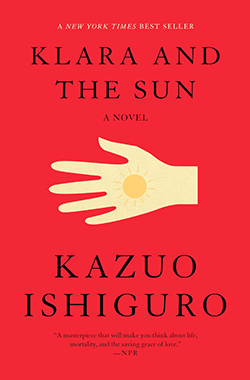
| Klara and the Sun by Kazuo Ishiguro I’m looking forward to reading Klara and the Sun, by Kazuo Ishiguro. A number of years ago I read Remains of the Day, which I (along with everyone else) loved. More recently I read The Buried Giant, which I found less beautiful but driven by interesting ideas. I’m excited to try Klara and the Sun next. I’d like to read this one on the train during my commutes, but sometimes books fit that setting and sometimes they do not—we’ll see! |
Image
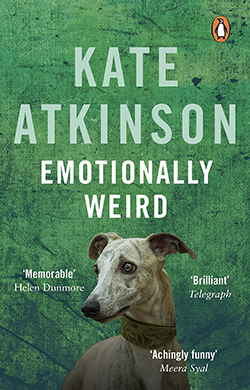
| Emotionally Weird by Kate Atkinson I recently finished this book, Atkinson’s third novel, originally published in 2000. Set mostly in 1970s England, this novel takes you by surprise and is definitely “weird.” The frame is a mother and daughter sharing stories on a remote island, but the majority of the narrative sits at a fictionalized University of Dundee where our main character, Effie, navigates college life, writing, stray animals, an eccentric private detective, and a slew of strange (but familiar) university personalities. Atkinson’s blend of postmodernism, Russian doll structure, and a dash of magical realism present delightful twists and turns. Atkinson is one of those writers whose style is so engaging and witty that I found myself laughing out loud and not minding at all when I had no idea where the narrative was going. |
Image
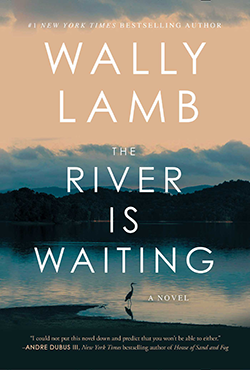
| The River is Waiting by Wally Lamb This book came out just this week (June 10) and it is Wally Lamb’s first book in (I think) nine years. Wally Lamb is maybe my favorite “popular” writer, so I have waited for this for a long time. From the look of it, this book will be complex, dark and heavy (set largely within a prison), so perhaps not a conventional summer read. But Wally Lamb has historically tackled complex social situations in stories that are overall dark with a surprising amount of levity baked in—that is, Lamb is worth reading any time of year. If you have not read his first book, She’s Come Undone, then I (and Samantha) definitely recommend that as well. |
Image
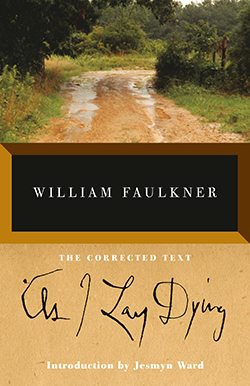
| As I Lay Dying by William Faulker I have never read Faulkner’s As I Lay Dying and picked it up almost randomly from the shelf because I wanted to be bathed in prose and carried away by it. So far, it seems like a perfect read for summer. Its dust and heat remind me of summer days running barefoot around Minnesota fields as a child. |
Image
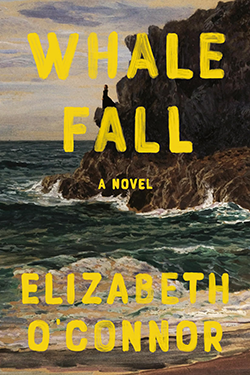
| Whale Fall by Elizabeth O’Connor Anyone interested in folklore, oral history, fishing communities, and language will find Whale Fall by Elizabeth O’Connor a sumptuous and sincere read. Set just before World War II, the book is a quasi-coming-of-age narrative written from the perspective of a young Welsh woman who encounters two researchers supposedly interested in the lives and practices of her dwindling island community. I highly recommend listening to this as an audiobook: I don’t normally go for full-cast recordings, but the combination of different voices, the mixing of English and Welsh, and the inclusion of Welsh song beautifully bring this story to life. |
Mystery
Image
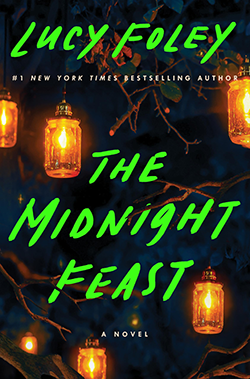
| The Midnight Feast by Lucy Foley A suspense/mystery/thriller, The Midnight Feast by Lucy Foley, is set at the opening weekend of a luxury hotel on the English Coast and is perfect for the beach. The setting gives the story summer vacation vibes, and its “thriller-lite” plot allows for mystery without too many back-shivers. Foley’s writing style leaves you in the dark about the relationships between her characters, which keeps you engaged throughout her books. |
Image
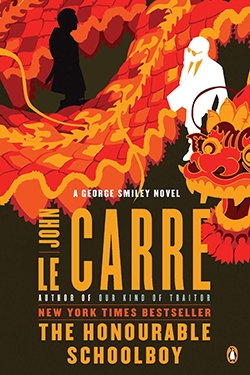
| The Honourable Schoolboy by John le Carré I’m currently reading—though not for the first time—The Honourable Schoolboy by John le Carré, and also paging haphazardly through his correspondence (A Private Spy: The Letters of John le Carré). Schoolboy is not the tight thrill of Tinker Tailor, but there’s something about its stumbling toward REDACTED (no spoilers!) that makes the story and the ideas underpinning it meet in a way that is satisfying, to me at least. |
Image
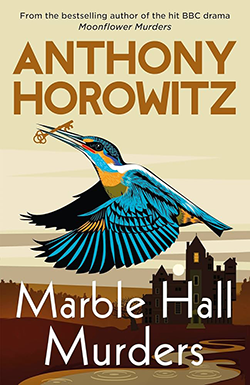
| Marble Hall Murders by Anthony Horowitz I am very much looking forward to reading the third and final installment of Horowitz’s metafictional mystery series centered on book editor turned amateur sleuth Susan Ryeland. I love books about books, and I also love mysteries. So, this series hits all the right spots for me. The first two books in the series, Magpie Murders and Moonflower Murders, feature writerly puzzles, murder mystery, and book-within-a-book structures connecting mysteries in Susan’s world to those in the detective series she edits. I’m looking forward to reading what new adventures await our protagonist! |
Fantasy
Image
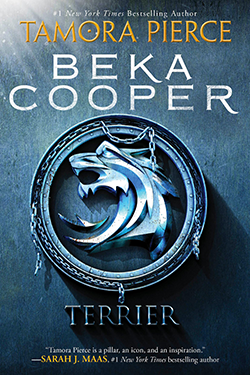
| Terrier by Tamora Pierce I’ve been reading Tamora Pierce books since I was 10, when I first discovered the magical world of Tortall through Alanna the Lioness and Daine the wild mage. After many years and a literature PhD, I began re-reading all of Pierce’s series, partially as a way of remembering how to read for fun. Pierce’s works stand the test of time and paved the way for much later YA fantasy with their strong female protagonists who grapple with how to forge your own path in a world that, much like our own, tries to box women into a few acceptable models of femininity. Terrier is the first book in Pierce’s Provost’s Dog trilogy and follows Beka Cooper in her first year as a trainee “dog”—a peacekeeper—in the city of Corus. Having grown up in the lower city, Beka seeks to protect those whose lives appear too small for others to care about. She is aided by her magical cat, Pounce, and her ability to hear the voices of the dead whose ghosts ride on the city’s pigeons. On this re-reading, Terrier stands out to me, not just as a coming-of-age story, but as an ode to city life. Beka’s pigeon flock could have flown straight out of Central Square, and the many people she encounters on her nightly patrols live complex lives as they make the most out of difficult circumstances. |
Image
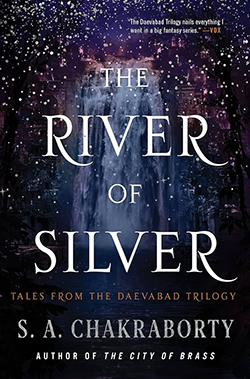
| The River of Silver by Shannon Chakraborty The River of Silver is a short-story collection of snippets and tales that build on the world of Chakraborty’s fantastic Daevabad trilogy. I can almost never get into short stories—why do they end just when I’m getting interested?!—but have enjoyed the chance to revisit the world of Daevabad and get more insight into many of the characters from the series. The trilogy, which begins with The City of Brass, presents a Game of Thrones-style political drama in a world based on legends and folklore from the Middle East. Chakraborty weaves together fantasy and historical detail (the novel is set in the eighteenth century) to create a rich and exciting world where djinn vie for control of the magical city of Daevabad. |
Ready to book an appointment with FWC staff? Access the FWC intake form.
Get the Latest Updates
Join Our Newsletter
Subscribe to Colloquy Podcast
Simplecast


